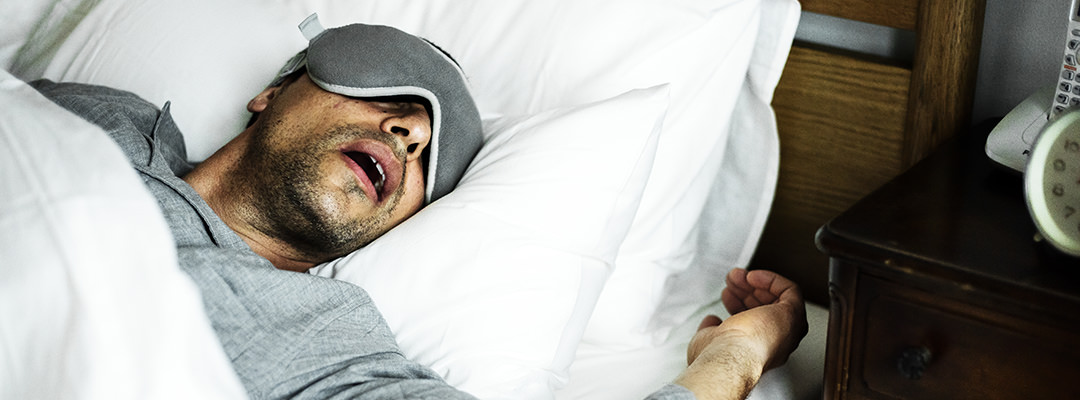Sleep talking is not exactly a rare thing to happen, it happens to people every day for different reasons, and almost everyone experiences it once or twice in their lives.
Sleep talking does not necessarily mean you will say something meaningful or deep, nope, it could be gibberish mumbling with absolutely no meaning whatsoever. Usually, people who talk in their sleep cannot remember this when they wake up.
Sleep talking is also known as somniloquy, which is a sleep disorder that describes talking during sleep and not being aware of it happening or even remembering it after. Sleep talking is the most common sleep abnormal behavior.
This could make sleep talking some kind of a mystery that everyone on Sleep underground wants to know more about, like do I talk because I’m talking to someone in my dreams? Or is it because something is bothering me and I keep thinking about it subconsciously?
So many questions about sleep talking have been left unanswered for decades… Until now! On the bright side, research has shown us the reasons why it happens, how it actually happens, and how to treat and prevent it. Keep reading to find out more.
First of All, What Is Sleep Talking?
Sleep talking is considered a kind of parasomnia. They are abnormal sleeping behaviors that usually happen during a specific time of your sleep such as REM (rapid eye movement) or even during non-REM sleep.
This is a very common sleeping behavior and is not a medical concern at all. Sometimes, the words uttered can be a bit vulgar, graphic, or sometimes completely harmless if not gibberish. People usually talk in their sleep for around 30 seconds or less and this can happen multiple times.
Who Usually Talk in Their Sleep?
Even though some scientists tend to believe that sleep talking runs in families, it only happens to almost 5 percent of adults, and more than 1 in every 10 young children. Parents have reported that their children between the age of 3 and 10 tend to speak after falling asleep once or twice a week.
Making the majority of sleep talkers consist of young children. And since individuals cannot be aware that they are talking in their sleep, these numbers are not completely accurate, as it needs to be reported by a bed partner or a family member.
Reasons Behind Sleep Talking
Even though most people think they talk in their sleep because they are dreaming about something and the words just come out loud. However, scientists cannot confirm that night chatter is connected to dreaming.
Even though sleep talking is usually pretty harmless, sometimes it could indicate another sleeping disorder issue or even a health issue, particularly PTSD (post-traumatic stress disorder). However, sleep talking is not considered a sign of any mental illnesses.
People with RBD (REM sleep behavior disorder) also yell in their sleep, scream, or even act out their dreams in a rather violent and aggressive way. Sleep talking can also happen with nocturnal sleep-related eating disorders (NS-RED), and in which people tend to eat while sleepwalking.
Other reasons behind sleep talking could be too much alcohol in your system, stress, fever, certain medications, drug abuse, or even night terrors. Which are quite common among children, as they usually dream of something frightening making them scream, kick, and even sleepwalk.
How to Prevent Sleep Talking?
Even though there is no definite treatment for sleep talking because -as we’ve mentioned- it is not a medical concern. However, there are ways that you can reduce the occurrence of sleep talking. Here are the best ways to do so.
Drink Less Alcohol and Caffeine
While we all love drinking till we pass out, it is one of the things that can easily cause sleep talking. Alcohol works as a stimulant that keeps you from falling asleep or keeps waking you up every few hours with difficulty falling back asleep.
The same goes for caffeine, if you drink too much then it will affect your sleeping quality, making it easier for you to talk during your sleep. It is recommended that you do not drink any caffeine after 2:00 PM.
Avoid Stress
Stress can be one of the things that cause you to sleep talk, when you are overwhelmed with emotions or stress, it can affect the quality of your sleep, making you talk in your sleep more often than usual.
Get Enough Sleep
Did you know that the recommended sleeping hours are between seven to nine hours every night? Well if you did not know, then you are probably either oversleeping or sleep-deprived. Both can cause you to talk during sleep.
The best way to adjust your sleeping schedule is to decrease 15 minutes every night until you reach the time you want to regularly wake up at. If you have trouble waking up, try exposing your eyes to daylight as it helps to notify your brain that this is the time to be awake.
Try Better Sleeping Habits
As discussed, stress could be a major cause of your sleep talking. To fix this, you can set a healthier sleeping routine by not using any electronics (mobile phones, tablets, TV) at least one hour before you sleep, and play some relaxing music to help you unwind.
If you feel like there is just way too much going on in your mind and you cannot easily unwind and get cozy in bed, maybe you should consider doing some yoga practices or writing down everything you think of in a journal.
Those two methods are tried and proven to help relax and clear your mind of any clutter thoughts especially during nighttime when it is the perfect time for night thoughts and insomnia to hit. You can try writing for half an hour, and practice for another half an hour before sleeping.
Sleep talking is often a funny thing whenever we notice someone doing it during sleep, but sometimes it could be annoying or even indicate something more serious. Therefore, try to fix it using the mentioned methods, and if you still face any problems, consider visiting your doctor for medical advice and a checkup.
Did you like it?4.4/5 (20)





